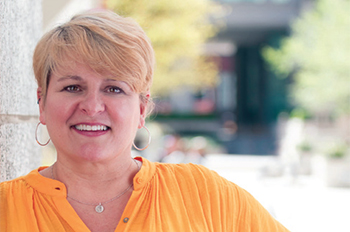By Laetitia Clayton

I remember the excitement I always felt as a kid when summer was coming to an end and school was about to start. I loved the summers off, too, but there was a certain anticipation about returning to school to see all of my classmates and teachers and to learn new things. I can’t imagine how I would feel today if I were a student.
The pandemic changed so much for all of us over the past year and a half, and schools are no exception. In fact, COVID highlighted many issues with students that already existed, just as it did with our society as a whole. Financial hardship for some families often became worse, affecting the basic needs of children, like housing and food security.
Some students did not attend virtual classes last year for various reasons, and therefore lost a year of learning. Children in abusive situations have been home for more than a year, leaving social workers to wonder how much abuse went unnoticed. Even those students who had all of their basic needs met and adapted fairly easily to remote learning are experiencing anxiety and depression—caused or worsened by the pandemic.
In this issue’s cover story, social workers weigh in on the best ways to help children, families and teachers adjust as schools fully reopen. One message is that there is an opportunity to make school environments more welcoming and less punitive.
We also examine social work’s involvement in reimagining law enforcement. The issue is complex, but “it’s important for social work to have a voice and be part of that change,” says Melvin Wilson, NASW senior policy adviser for social justice and human rights. Social workers already are involved in various ways—by supporting legislation and community engagement when it comes to reimagining the U.S. policing system.
Social worker and U.S. Rep. Karen Bass, D-Calif., and U.S. Sen. Chris Van Hollen, D-Md., reintroduced in June the Community-Based Response Act. The legislation creates community-based emergency and non-emergency grant programs that would fund alternatives to policing in certain situations—dispatching mental and behavioral health professionals, crisis responders or mediators instead of police. NASW is among a diverse group of organizations and advocates that support the bill.
Also in this issue, NASW President Mit Joyner, in collaboration with Mia Thornton, a PhD student at Howard University School of Social Work, look at the current reaction to critical race theory.
“The same country that erected protections for ‘free speech’ now bears witness to deliberate efforts to suppress the historical and contextual accounts that have shaped and contributed to every aspect of our present-day lives and the institutions that govern them,” they wrote. They call on social work to “take the helm of social justice.”
In the Association News section, you can read about the recently released NASW report and apology “Undoing Racism Through Social Work” and about the association’s ongoing efforts to address systemic racism.
As you direct your time and energy to these weighty issues, I hope you also remember to take care of yourselves.
Until next time,
Laetitia